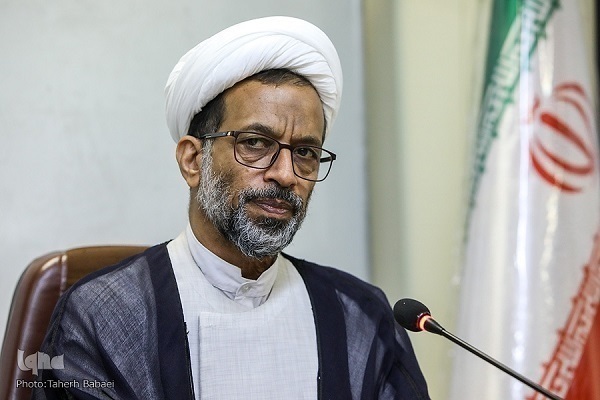Millions Unite at Arbaeen: A Global Opportunity to Embed Islamic Values, Scholar Says

Each year, more than 20 million people from across the world gather for the Arbaeen pilgrimage in Iraq, commemorating the martyrdom of Imam Hussein (AS), a revered figure in Shia Islam. The massive turnout has become one of the largest religious gatherings globally.
“This is an extraordinary capacity—unmatched anywhere else in the world,” said Hojat-ol-Islam Isa Isazadeh, a faculty member at the Research Institute for Culture and Quranic Teachings, in an interview with IQNA.
“No other event draws 20 million people expressing love, devotion, and reverence for a personality martyred 1,400 years ago,” he said.
Isazadeh emphasized that this global phenomenon was not achieved overnight. “This is not the result of simple advertisements,” he stated. “It is the outcome of the sacrifices made by thousands of martyrs since the time of the Prophet Muhammad (PBUH). We have paid a very high price—youth, scholars, and leaders gave their lives—so this divine phenomenon could emerge.”
Read More:
“Imam Hussein (AS), his companions, his children, and his family paid the highest price for the revival of God’s religion and the remembrance of Ahl al-Bayt (AS).” Now, with the Arbaeen pilgrimage thriving, Isazadeh asked: “How do we preserve and sustain this?”
He argued that the Arbaeen movement offers enduring lessons and behavioral models for building a Quran-centered lifestyle.
“We’ve identified certain characteristics among Arbaeen pilgrims—such as piety, patience, endurance, and self-sacrifice—that need strategies to be transformed from temporary displays into lasting beliefs,” he said.
According to Isazadeh, ten qualities stood out during the pilgrimage: remembrance of God, devotion to the Prophet’s family, piety, patience, forgiveness, self-sacrifice, mutual respect, empathy, unity, and hospitality.
“These traits are central to an Islamic way of life,” he said, stressing the responsibility of leaders and the community to nurture them.
He also pointed to the spiritual atmosphere of the pilgrimage, where pilgrims engage in prayers, recitations, and poetic tributes to the Ahl al-Bayt (AS). “This shows the depth of devotion these people have,” he said.
Read More:
The scholar also highlighted the interfaith nature of the event. “The presence of Sunni scholars, Christians, and followers of other religions in mourning rituals reflects the broad appeal and significance of Imam Hussein’s (AS) message,” he said. “It’s a major asset for the Islamic world.”
Isazadeh concluded by urging religious and cultural institutions to make better use of digital platforms to convey these teachings.
“With the influence of social media and active networks, we’re not utilizing this capacity well enough. We need to take up the responsibility and effectively communicate Islamic teachings and resist hostile narratives,” he said. “Especially during Arbaeen, promoting and protecting these values is a collective obligation.”
4297800
Translation by Mohammad Ali Haqshenas



